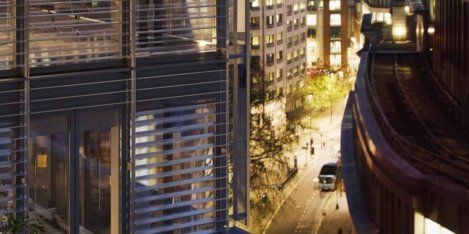To provide the best experiences, we use technologies like cookies to store and/or access device information. Consenting to these technologies will allow us to process data such as browsing behaviour or unique IDs on this site. Not consenting or withdrawing consent, may adversely affect certain features and functions.
The technical storage or access is strictly necessary for the legitimate purpose of enabling the use of a specific service explicitly requested by the subscriber or user, or for the sole purpose of carrying out the transmission of a communication over an electronic communications network.
The technical storage or access is necessary for the legitimate purpose of storing preferences that are not requested by the subscriber or user.
The technical storage or access that is used exclusively for statistical purposes.
The technical storage or access that is used exclusively for anonymous statistical purposes. Without a subpoena, voluntary compliance on the part of your Internet Service Provider, or additional records from a third party, information stored or retrieved for this purpose alone cannot usually be used to identify you.
The technical storage or access is required to create user profiles to send advertising, or to track the user on a website or across several websites for similar marketing purposes.
 We are now just a few months away from the grand opening of the central section of Crossrail, the 118km long railway line spanning London and the South East which will, once completed, will deliver a direct connection between all of London’s main employment centres; linking Heathrow with Paddington, the West End, the City and Canary Wharf. This ambitious redevelopment plan will bring huge positive change to the City and is estimated to generate over 850,000 new jobs in the Capital, as well as making the lives of those already working in London easier and more efficient.
We are now just a few months away from the grand opening of the central section of Crossrail, the 118km long railway line spanning London and the South East which will, once completed, will deliver a direct connection between all of London’s main employment centres; linking Heathrow with Paddington, the West End, the City and Canary Wharf. This ambitious redevelopment plan will bring huge positive change to the City and is estimated to generate over 850,000 new jobs in the Capital, as well as making the lives of those already working in London easier and more efficient.






 The already low number of fathers claiming paternity leave has fallen for the first time in five years, to 213,500, down 3 percent from 221,000 last year an analysis by law firm EMW has revealed. To help encourage more men to take paternity leave, the Government launched the shared parental leave scheme in 2015. However, take up of the scheme has also been slow, with less than 2 percent of all UK fathers participating. These latest figures suggest that hundreds of thousands of men are not taking up their entitlement to paternity leave. In comparison with low rates of paternity leave, nearly treble the number of mothers (662,700) took maternity leave in 2017-2018, up from 661,000 in 2016/17.
The already low number of fathers claiming paternity leave has fallen for the first time in five years, to 213,500, down 3 percent from 221,000 last year an analysis by law firm EMW has revealed. To help encourage more men to take paternity leave, the Government launched the shared parental leave scheme in 2015. However, take up of the scheme has also been slow, with less than 2 percent of all UK fathers participating. These latest figures suggest that hundreds of thousands of men are not taking up their entitlement to paternity leave. In comparison with low rates of paternity leave, nearly treble the number of mothers (662,700) took maternity leave in 2017-2018, up from 661,000 in 2016/17. 























August 15, 2018
The global problem of overwork and the right to disconnect
by Aki Stamatis • Comment, Flexible working, Technology, Wellbeing
Anybody who doubts the importance of work and working culture to people’s lives should look at the resistance to President Macron’s mooted changes to labour laws. His attempts to modernise and liberalise French workplace legislation marked the first cracks in his reputation and brought millions of French workers to the streets as part of a national strike.However, one change to French legislation that met with little or no resistance earlier this year was a new right to avoid work emails outside working hours. Under the legislation, firms with more than 50 workers will be obliged to draw up a charter of good conduct, setting out the hours when staff are not supposed to send or respond to emails as they seek a right to disconnect.
(more…)